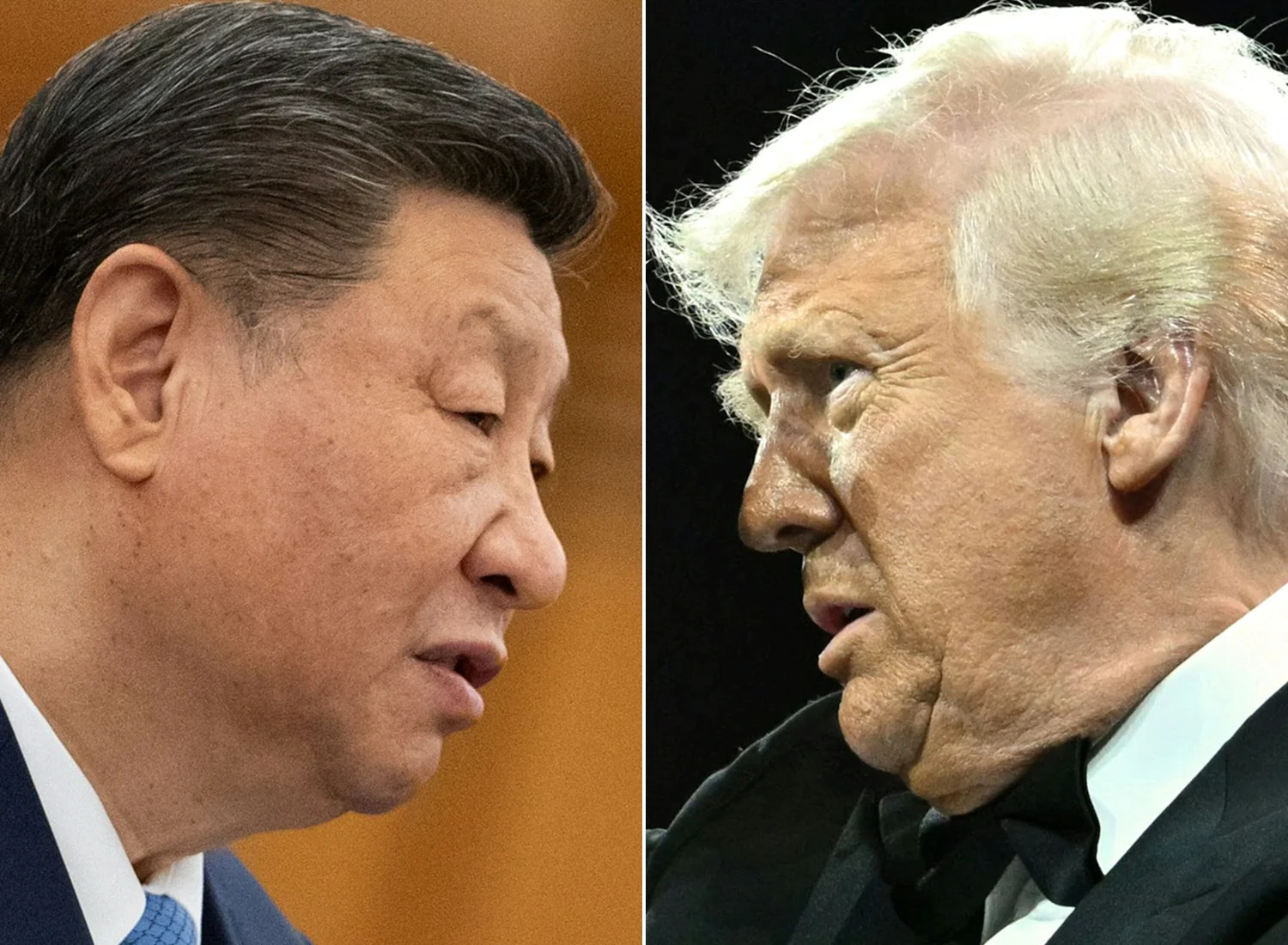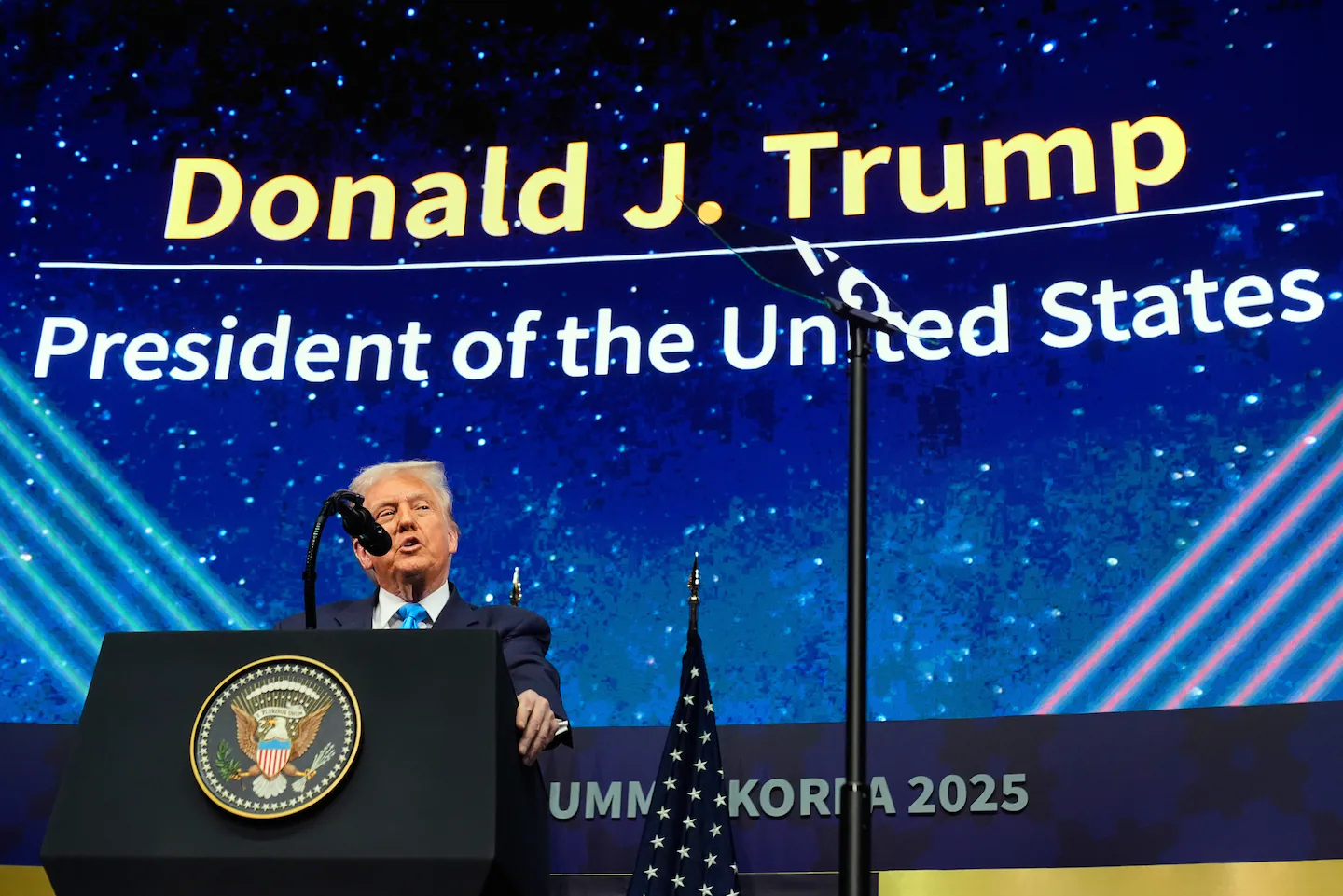Copyright independent

U.S. president Donald Trump’s whirlwind tour of Asia reaches its climax on Thursday with a long-awaited meeting with his Chinese counterpart Xi Jinping, the first between the pair since the American began his second term. The White House has voiced its optimism about signing a wide-reaching deal during the talks, as the two superpowers seek a mutually beneficial end to their trade détente. Trump will be in South Korea for the last stop on his five-day Asia tour, which has included significant visits to the Asean summit in Malaysia and a meeting with the new prime minister Sanae Takaichi in Japan. He will meet Xi for the first time in six years on the sidelines of an Asia-Pacific economic summit on Thursday. Negotiators from the world's top two economies have already hashed out a framework for a deal, with U.S. officials over the weekend saying it would include a halt to steeper American tariffs and Chinese export controls on rare earth minerals. They hope Thursday’s interaction will shape the trajectory of U.S.-China relations, strained by years of trade tensions, for the remainder of Trump’s second term. Experts do not expect the two countries to resolve all their differences before the two presidents meet, but they are hoping for enough progress to stop the rivalry from doing more economic damage. The lead-up to the meeting has gripped headlines for weeks. Stock markets across the world jumped on Monday at just the possibility of a deal being discussed. Trump has since added to the general optimism, sounding confident of a breakthrough. "I have a lot of respect for President Xi and we are going to, I think, come away with a deal," Trump told reporters on board Air Force One, indicating a shift in his tone and a softer approach towards the Asian rival. He said he aimed to visit China "in the earlier part of 2026". Leaders from 21 Pacific Rim economies are gathering in Gyeongju, South Korea, this week for the Asia-Pacific Economic Cooperation (Apec) forum. Thursday’s meeting on the sidelines of Apec comes after Washington and Beijing raised tariffs on each other's exports and threatened to halt trade involving rare earths and technologies. Trump has so far managed to clinch trade deals with Japan and four Southeast Asian nations, but the real challenge lay in convincing Xi to lift curbs on rare earth exports, restart US farm imports, and granting American firms a bigger foothold in China. The talks are also expected to touch upon the issues of Taiwan – which China claims as part of its own territory – Russia’s war in Ukraine, and America’s fentanyl crisis, among others. But the possibility of the highly-anticipated meeting was initially jeopardised by Trump's threats of imposing a 100 per cent additional tariffs in retaliation against China's restrictions on export of rare earths – the minerals crucial for everything from smartphones to fighter jets. Even though Trump ramped up the tariff pressure against China that he began during his first term in office, Beijing pushed back with its stranglehold on strategic minerals. China produces almost 70 per cent and processes nearly 90 per cent of the world’s rare earth elements. It also stopped agricultural imports that could hurt Trump's Republican voter base and diversified exports to different markets across Asia and Africa. In a tit-for-tat move, China also hit US-owned vessels docking in the country with new port fees. Beijing has also threatened American companies such as Google and Nvidia with anti-trust investigations. Bloomberg Economics estimates that a 100 per cent tariff hike by the US will raise effective rates on Chinese goods to 140 per cent, which could halt trade altogether. Therefore, Trump's threats to cripple China through a near-total embargo would cause irreparable damage to America as well. Trump believes he holds the upper hand, but Xi is unlikely to kowtow to the US president, as China’s economy has remained largely unaffected by Washington’s tariffs so far. The enraged US administration called China "weak", after Beijing imposed export restrictions. But numbers show China might be winning the trade war. Chinese exports rose 8.3 per cent in September from a year earlier to about £246bn even as shipments to the US fell about 27 per cent. "There’s no pretence that they’re going to reach a grand bargain that solves everything in the relationship," Jeff Moon, a former US trade official and diplomat who now runs the China Moon Strategies consultancy, told the Associated Press. A U.S. official told The Financial Times that they expected the truce would be extended by more than the previous 90-day period. “We think it would give great stability and great certainty to the global economy and to the U.S.-China relationship,” the official said. Treasury secretary Scott Bessent, who led the U.S. side of the talks in Malaysia, said both sides have agreed on a "very positive" framework. Chinese state media Xinhua reported that the negotiations covered export controls, levies against Chinese shipping, agriculture and fentanyl. Trade analysts warn that markets could be in for another week of sharp twists and turns. “Global equity bulls have regained control as optimism over a potential US–China breakthrough sparks risk appetite. But traders should brace for heightened volatility as policy decisions and corporate results dictate sentiment," Lukman Otunuga, senior market analyst at FXTM, tells The Independent. Trump is also expected to press China to resume the purchase of soybeans, which are America's largest export to China. “I want our farmers to be taken care of. And he [Xi] wants things also," Trump said. Should he fail to reach a deal, Trump has said he would subsidise American farmers – a key demographic for the Republican vote in the Rust Belt – for their lost export revenue. Trump wants to push China to bring Russia to the negotiating table to end its three-year-long war with Ukraine. "I'd like to see China help us out [with Russia]," he said, adding that Xi too wants to see the war end. Trump has been pushing for Russian president Vladimir Putin to end the war in Ukraine, but a ceasefire deal has so far eluded the American president, who appears to be on a spree to end all global conflicts. China is Russia's strongest ally and has been accused by the U.S. in the past of aiding Putin's war machine through oil purchases and providing technology – a claim denied by Beijing. Following Western sanctions, China has been the No. 1 overall consumer of Russian energy, having purchased some $219.5bn (£164bn) worth of Russian oil, gas and coal. The US president last week claimed the Chinese president "can have a big influence on Putin". Trump has since grown frustrated with Putin following the failed Alaska summit in August and imposed sanctions on two Russian oil giants. "Every time I speak to Vladimir, I have good conversations and then they don't go anywhere," Trump said earlier this week. "This approach acknowledges that China holds critical, non-military leverage over Russia as its key economic partner. By tasking Xi with resolving the conflict, Trump is employing his signature transactional style, but also asking a strategic rival to execute a major US foreign policy goal," says Yuriy Boyechko, founder of non-profit Hope for Ukraine. For its part, China is expected to push Trump to adhere to the “one-China” policy and denounce ties with the self-governed island of Taiwan. Since taking office earlier this year, Trump has vacillated on his position towards Taiwan. Trump says Xi has told him he will not invade while the Republican president is in office, but the American is also yet to approve any new US arms sales to Taipei. The US, like most countries, has no formal diplomatic ties with Taiwan, but is bound by law to provide the island with the means to defend itself, and the issue is a frequent irritant in Sino-US relations. Taiwan's foreign minister Lin Chia-lung said he was not worried that Trump would "abandon" the island. Over the weekend, U.S. secretary of state Marco Rubio rejected the idea that Taiwan would be used as a bargaining chip as part of its trade talks with China.



